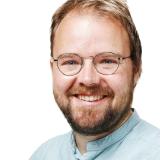dr. Tomas Turner-Zwinkels

Assistant Professor
TSB: Tilburg School of Social and Behavioral Sciences
TSB: Department of Sociology
Bio
A socially engaged quantitatively minded political sociologist that loves bad ideas. Keen on exploring and teaching how to tackle policy issues with theoretical scrutiny, exciting data and rigorous quantitative methodology. Graduated with the highest honours (summa cum laude) from his research master at the ICS in Groningen. Wrote his PhD, titled 'A New Macro-Micro Approach to the Study of Political Careers: Theoretical, Methodological and Empirical Challenges and Solutions' at the University of Groningen. After working at the University of Basel (Switserland) in a large comparative research project on political careers he recently started as an Assistant Professor of Sociology at the University of Tilburg. Member of the Dutch National Think Tank.
Expertise
My research interest breaks down into three key domains: labor market sociology, the accountability of political elites and (big) data-management. In the domain of labor market sociology I am interested in gender, political labor markets, (political) career ambition (among members of disadvantaged groups) and the formal modeling of the decisions of selection committees. When it comes to the accountability of political elites, I am interested in the role that social media can play in establishing new relations between citizens and representatives. Finally, the use of large-scale longitudinal observational data has led me to develop a particular affinity with (big) data-management. My long-term research ambition is to contribute to the development of solid analytical sociological theory that gives insight into the dynamics that shape (inequality in) (political) careers. Ultimately, my hope is that such knowledge could lead to better electoral institutions and recruitment practices.
Teaching
I am passionate about teaching research and enjoy the challenge of translating my knowledge and skills into lessons. For me this means not only stimulating academic skills, but also communicating an enthusiasm for social science research, its uses and applications, to not only bring research to life, but to add depth of understanding to students’ experiences of their world.
Courses
- Ma Sem. SOC: From Theory to Res. Fall
- Ma Sem. SOC: From Theory to Res. Spring
- Master's thesis Sociology: HWS
- Master's Thesis Sociology: PPSinCP
- Lifecourse and Health
- Master's Thesis Sociology: PPSD
- Diversity and Community
Recent publications
-
No representation without compensation - The effect of interest group…
Huwyler, O., Turner-Zwinkels, T., & Bailer, S. (2023). No representation without compensation: The effect of interest groups on legislators’ policy area focus. Political Research Quarterly, 76(3), 1388-1402. -
Affective polarization and political belief systems - The role of pol…
Turner-Zwinkels, F., van Noord, J., Kesberg, R., García-Sánchez, E., Brandt, M., Kuppens, T., Easterbrook, M. J., Smets, L., Gorska, P., Marchlewska, M., & Turner-Zwinkels, T. (2023). Affective polarization and political belief systems: The role of political identity and the content and structure of political beliefs. Personality and Social Psychology Bulletin. Advance online publication. -
Parliaments day‐by‐day - A new Open Source database to answer the que…
Turner‐Zwinkels, T., Huwyler, O., Frech, E., Manow, P., Bailer, S., Goet, N. D., & Hug, S. (2022). Parliaments day‐by‐day: A new Open Source database to answer the question of who was in what parliament, party, and party‐group, and when. Legislative Studies Quarterly, 47(3), 761-784. -
The winners of legislative mandate - An analysis of post‐parliamentar…
Clint, C., Stefanie, B., & Tomas, T.-Z. (2021). The winners of legislative mandate: An analysis of post‐parliamentary career positions in Germany and the Netherlands. European Journal of Political Research, 60(1), 25-45. -
Policy or person? - What voters want from their representatives on Tw…
Giger, N., Bailer, S., Sutter, A., & Turner-Zwinkels, T. (2021). Policy or person? What voters want from their representatives on Twitter. Electoral Studies, 74, Article 102401.